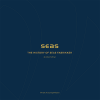Native American Drama: A Critical Perspective
The recent rise in publications and professional productions of Native American plays moves Native theatre from specific, cultural communities into larger, more generalized audiences, who quickly discover that Native plays are uniquely different from mainstream drama. This is because Native theatre is its own field of drama, one that enacts Native intellectual traditions existing independently from western drama yet capable of extending mainstream theatrical theories. This study contends that Native dramaturgy possesses a network of distinctive discourses pertaining to Native American philosophies and relating to theatre’s performative medium. Following an introduction that traces Native American theatre history from the 1900s to today, Native American Drama moves into a critical examination of Native dramaturgy. The study privileges voices of Native literary theorists, including Gerald Vizenor, Robert Allen Warrior, and LeAnne Howe, to introduce four Native discourses – platiality, storying, tribalography, and survivance – that intersect performative elements of space, speech, action, and movement.
• Includes an extensive historical overview of Native American theatre from 1900 – most studies of Native American drama only discuss the field from the 1970s Red Power movement onwards • The study privileges the theoretical work of Native American literary theorists, creating a fresh approach which addresses the unique attributes of Native plays • Includes nine full-length analyses of Native American plays that model Native philosophies in action on the page and stage
- Forlag: Cambridge University Press
- Utgivelsesår: 2009
- Kategori: Drama
- Lagerstatus: Ikke på lagerVarsle meg når denne kommer på lager
- Antall sider: 254
- ISBN: 9780521519809
- Innbinding: Heftet











